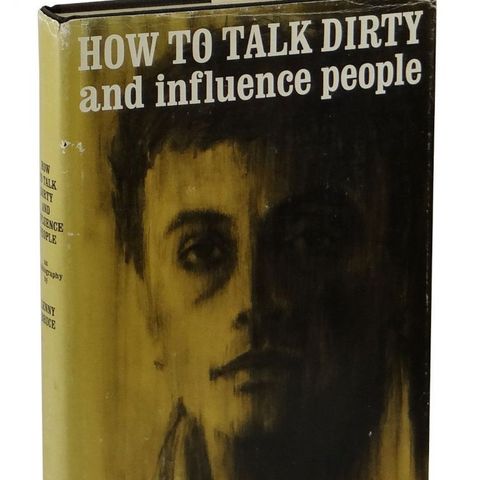Kitty Bruce 50th Anniversary Of Lenny's Passing

Aug 3, 2016 ·
7m 24s
On August 3, 1966, Lenny Bruce died at the age of 40. Yet his impact on the worlds of comedy, jazz, the beats, and satire is incalculable. His autobiography, How...
show more
On August 3, 1966, Lenny Bruce died at the age of 40. Yet his impact on the worlds of comedy, jazz, the beats, and satire is incalculable. His autobiography, How to Talk Dirty and Influence People, remains a brilliant account of his life and the forces that made him at once one of the most important and controversial entertainers.
“His scathing attacks on organized religion, politics, the death penalty, race and the ways in which we have chosen to live, made me laugh and made me think,” writes Lewis Black in a new preface. “This book gives us a solid context of what Lenny lived through and had to face. (We complain about the politically correct environment that makes comedy difficult? Are you kidding me?) We are talking about not even being able to tell your jokes without the threat of imprisonment.” In 1964, after being arrested on multiple occasions, Lenny Bruce was prosecuted because of his words and convicted of obscenity. In this book, “Bruce in effect is still arguing his case, unflinchingly pointing out what his accusers have done to him, even while they held great legal power over him. The bravery of that act should inspire us all,” Howard Reich writes in a new foreword. “If there’s a central lesson running through all of this, perhaps it’s Bruce’s apparently boundless respect for everyone else’s rights, even as his own were being so grievously violated.” Assembling his musings in essayistic chapters, Bruce writes candidly of the drama of his childhood; his Navy service and the postwar boredom that led him to seek a discharge; his emergence as a comic and how he virtually invented stand-up comedy as we know it today; and the substance abuse that tragically claimed his life. “Equally important, though, is the heady range of ideas Bruce dares to take on in this volume,” adds Reich. “The man was hell-bent on proclaiming the absurdities he saw but others didn’t or wouldn’t.”
Lenny Bruce (1925 – 1966) was a stand-up comedian, social critic, satirist, and screenwriter. His 1964 trial for obscenity (and posthumous pardon) is seen as a landmark for freedom of speech in the United States. Today, Kitty Bruce champions her father’s legacy through the Lenny Bruce Memorial Foundation. She will discuss why her father’s work and this book are as relevant today as they were when the book was first published in the 1960s.
show less
“His scathing attacks on organized religion, politics, the death penalty, race and the ways in which we have chosen to live, made me laugh and made me think,” writes Lewis Black in a new preface. “This book gives us a solid context of what Lenny lived through and had to face. (We complain about the politically correct environment that makes comedy difficult? Are you kidding me?) We are talking about not even being able to tell your jokes without the threat of imprisonment.” In 1964, after being arrested on multiple occasions, Lenny Bruce was prosecuted because of his words and convicted of obscenity. In this book, “Bruce in effect is still arguing his case, unflinchingly pointing out what his accusers have done to him, even while they held great legal power over him. The bravery of that act should inspire us all,” Howard Reich writes in a new foreword. “If there’s a central lesson running through all of this, perhaps it’s Bruce’s apparently boundless respect for everyone else’s rights, even as his own were being so grievously violated.” Assembling his musings in essayistic chapters, Bruce writes candidly of the drama of his childhood; his Navy service and the postwar boredom that led him to seek a discharge; his emergence as a comic and how he virtually invented stand-up comedy as we know it today; and the substance abuse that tragically claimed his life. “Equally important, though, is the heady range of ideas Bruce dares to take on in this volume,” adds Reich. “The man was hell-bent on proclaiming the absurdities he saw but others didn’t or wouldn’t.”
Lenny Bruce (1925 – 1966) was a stand-up comedian, social critic, satirist, and screenwriter. His 1964 trial for obscenity (and posthumous pardon) is seen as a landmark for freedom of speech in the United States. Today, Kitty Bruce champions her father’s legacy through the Lenny Bruce Memorial Foundation. She will discuss why her father’s work and this book are as relevant today as they were when the book was first published in the 1960s.
Information
| Author | Arroe Collins |
| Website | - |
| Tags |
Copyright 2024 - Spreaker Inc. an iHeartMedia Company
